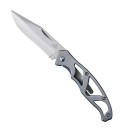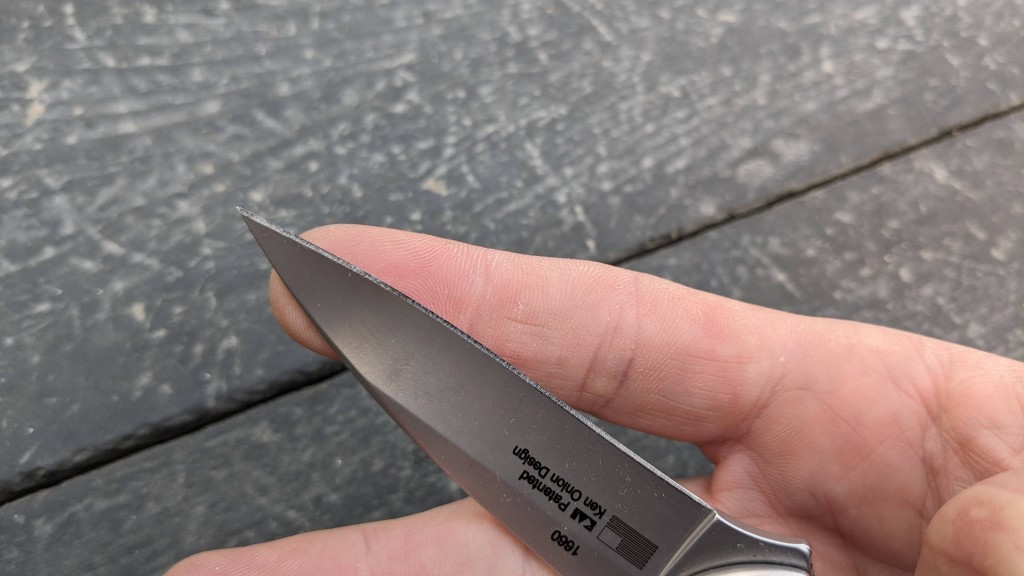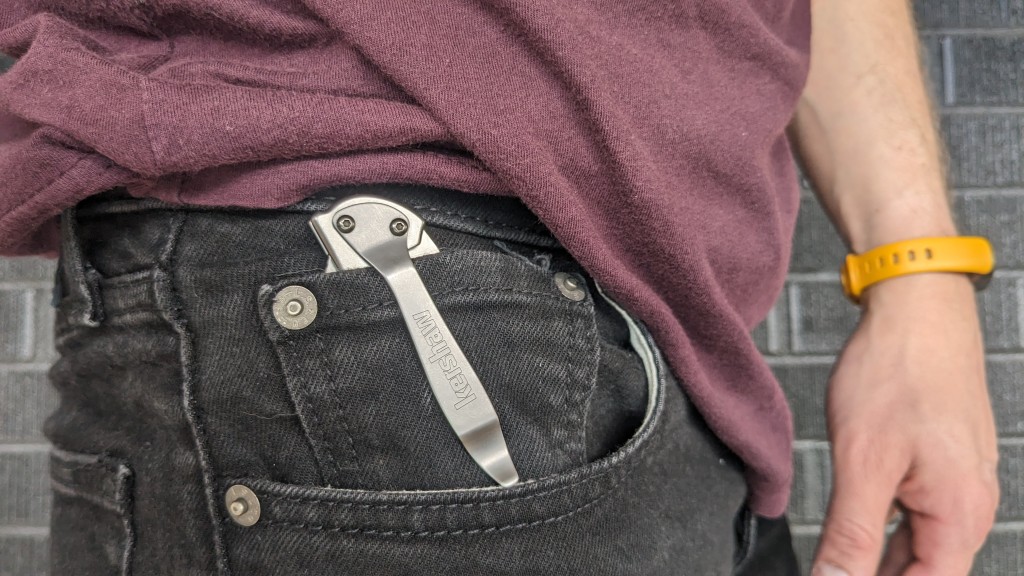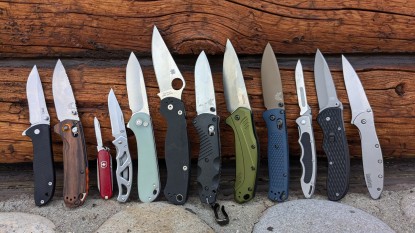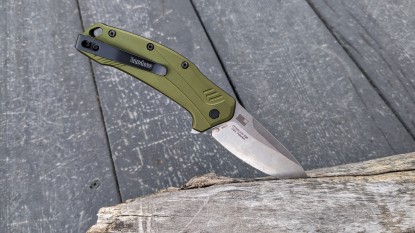Our Verdict
Compare to Similar Products
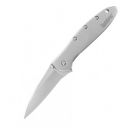 This Product
Kershaw Leek | |||||
|---|---|---|---|---|---|
| Awards | Best Everday Carry | Best Bang for your Buck | Best on a Tight Budget | Best Knife for Hunting | |
| Price | $61.00 at Amazon Compare at 2 sellers | $77 List $57.38 at Amazon | $48 List $48.00 at Amazon | $65 List | $17.00 List $14.99 at Amazon |
Overall Score  |
|||||
| Star Rating | |||||
| Bottom Line | This thin knife disappears in (or on the edge of) your pocket, tackles most tasks, and is easy on your wallet | There's sure to be a colorway that suits you in CIVIVI's lineup. And take confidence that a great knife will come with it no matter what | CRKT designed this knife to be especially portable and included some commendable material selections | For hunting, you want a new, carefully tuned factory edge all the time, and this design makes swapping in and out new blades easy | A simple, well-made, especially portable option in today's knife market that's small and light enough to forget it's on you, and strong enough to work in a pinch |
| Rating Categories | Kershaw Leek | CIVIVI Button Lock... | CRKT Drifter | Havalon Piranta Ori... | Gerber Paraframe Mini |
| Blade and Edge Integrity (30%) | |||||
| Ergonomics (25%) | |||||
| Portability (20%) | |||||
| Construction Quality (25%) | |||||
| Specs | Kershaw Leek | CIVIVI Button Lock... | CRKT Drifter | Havalon Piranta Ori... | Gerber Paraframe Mini |
| Blade Length (Measured) | 2.90 in | 2.77 in | 2.75 in | 2.31 in | 2.20 in |
| Length Open (Measured) | 7.00 in | 7.05 in | 6.49 in | 6.62 in | 5.3 in |
| Length Closed (Measured) | 4.00 in | 4.15 in | 3.65 in | 3.79 in | 3.10 in |
| Weight (Measured) | 3.00 oz | 3.15 oz | 2.20 oz | 1.85 oz | 1.45 oz |
| Closed Thickness w/o Pocket Clip (Measured) | 0.31 in | 0.52 in | 0.33 in | 0.36 in | 0.29 in |
| Blade Style | Drop point, plain edge | Drop point, plain edge | Recurve blade, plain edge | Interchangeable scalpel blades | Drop point, plain edge |
| Blade Material | Sandvik 14C28N stainless steel | Nitro-V stainless steel | D2 stainless steel | S30V stainless steel | High carbon stainless steel |
| Closed Blade Lock | Yes | No | No | No | No |
| Open Blade Lock Mechanism | Frame lock | Button lock | Liner lock | Frame lock | Frame lock |
| Handle Material | 410 stainless steel | G10 fiberglass laminate | G10 fiberglass laminate | Stainless steel with G10 inlay | Stainless steel |
| Opening Style | Flipper (assisted), ambidextrous thumb stud | Flipper (non-assisted) | Flipper (non-assisted), ambidextrous thumb stud | Ambidextrous thumb stud | Fingernail |
| Carry Style | Pocket clip, lanyard hole | Pocket clip, lanyard hole | Pocket clip, lanyard hole | Pocket clip, lanyard hole | Pocket clip |
| Other Features Or Functions | None | Lanyard hole | Lanyard hole | None | None |
Our Analysis and Test Results
The Leek is a well-crafted, elegant knife. Well-respected pocket knife guru Ken Onion signs off on the overall blade design with a brand on the blade (hence the “Leek” moniker; many Kershaw models have onion-themed names.) The slender blade is made with the excellent 14C28N stainless steel alloy and a rare, low, barely-there curve in the belly (likely a striking design choice over anything). You can deploy the assisted-opening feature with either your thumb via the blade studs or your index finger via the spine flipper. This versatility and ease of deployment alone stand out at any price point. We tested the Leek many years back and then revisited it more recently. What we found years ago holds up now, even after testing a couple dozen more knives in the meantime. The Leek is seemingly timeless.
Performance Comparison
Blade and Edge Integrity
Evaluating knife blades is a difficult task, especially when trying to apply objective terminology. Sharpness alone is difficult to assess in quantifiable terms. We can start by considering the specific stainless steel alloy used to clue us into what a knife's advantages may be. The Leek uses 14C28N steel, developed by Sandvik engineering group for Kershaw. The steel is especially corrosion resistant while otherwise striking a good compromise between edge retention and resharpenability. It is a thin blade, too – this is made to be an especially portable knife – and is paired with an all-stainless steel body. It isn't a workhorse cutting machine but rather a sleek, everyday carry.
Indeed, as a pure cutting tool, the Leek's blade isn't perfect. The edge did withstand a great deal of routine use. However, at some point early in the first portion of a two-part testing process, a portion of the Leek blade “rolled” over – the leading edge bent over at a virtually microscopic level. The tester only noticed this well after the damaging event and cannot put his finger on any single traumatic event, nor does he recall any specific heavy-duty cutting task. Generally speaking, this sort of edge wear is a function of a blade that has been ground to too acute of an angle. The aforementioned dulling event took place with the edge still in factory-delivered condition. But effective blade maintenance, in this case honing with standard kitchen steel, brought the knife back into a visual and functional shape.
Our award-winning knives tend to have thicker blades. For heavier usage, thicker blades seem more appropriate. For camping and kitchen use, the thin blade of the Leek is great. Elsewhere around the house and on your adventures, be mindful of the delicate nature of that fine edge. If you know you'll tackle heavier tasks (home improvement, auto repair, maintenance, woodworking, etc.), consider a sturdier knife.
Ergonomics
The Leek is thin and small. It is about the same length as both our Editors' Choice winners. The length is just right for everyday carry. A deeper blade with a more rounded belly might feel better in some circumstances, but this fine edge and slender blade are great for foods and textiles.
Especially compared with the average pocket knife, the thickness of the Leek handle is slightly too slim. Extended usage and heavy cutting tire the hand with a knife of these dimensions. The blade opens much like the other knives in the test, with a thumb stud for either hand. The assisted opening spring can also be engaged with a not-so-standard index finger flick. Brilliant. The blade locks open with a simple and efficient liner lock.
There's also a simple slider mechanism near the butt that locks the blade closed. The spring assist is calibrated such that it shouldn't ever open in the pocket if left disengaged. Personally, we would only consider locking it closed during shipping or something of that nature, so you're likely to use it unlocked on a day-to-day basis. But because of this lock, the knife has an annoying tendency to partially engage while slipping it into your pocket, so we wish it were just omitted entirely.
The pocket clip is noteworthy, too, in that it can swap places from the tip-down orientation to a tip-up orientation more commonly seen on other assisted open knives (and which we prefer.) In this way, it can be pulled from a pocket and deployed in one seamless motion. This is a great design, but we're a bit puzzled as to why the handle doesn't have mirrored anchor points on the other side – the designer apparently decided that this is a right-handed knife. Our guess is they wanted to preserve the clean aesthetic of the knife face. But this simple design tweak could make this knife much more popular.
Portability
Portability and ergonomics are generally at odds. Sound ergonomic design, especially when the knife is used for extended periods or heavy cutting, requires a handle with a rounded profile in a radius large enough to fill a loosely clenched fist. On the other hand, carrying a knife in one's pocket is more comfortable when the knife is thin and flattened.
The Leek puts a mid-length blade in a thin handle. It virtually disappears in one's pocket. The pocket clip keeps it up out of the mess of change and keys. The knife's frame can be threaded with a lanyard for other carrying options. We were very pleased with the portability of the Leek. Only the tiniest knives in our test are more portable than the Leek. For backpacking use, you might find something lighter and/or smaller to be better. Otherwise, given what day-to-day use usually entails, the Leek is optimally sized to balance function and portability.
Construction Quality
At no point in either session of our routine usage, aside from the blade “edge rolling” mentioned above, did the Leek show even the slightest weakness in construction. We carried, cut with, and dropped the Leek all over the Mountain West. The assembly, weight, and materials inspired confidence and never let us down.
Since we pore over a vast market and select only the best knives available, we tend to get a review subset that is exceptionally well-made. There are simply no highly regarded knives on the market that aren't well constructed. We had no significant problems with the construction quality of any of the knives we tested. That being said, some companies achieve robust construction with the sheer mass of materials, while others do so in a more sophisticated fashion. The Leek is in this latter category. It is thin, light, and smooth while holding up very well to all but the most rigorous use.
Should You Buy the Kershaw Leek?
The Kershaw Leek is a finely crafted pocket knife. It strikes a balance of form and function usually reserved for far more expensive tools. You can undoubtedly find great budget knives for fractions of the cost of the Leek (and we've tested them). However, none can hold a flame to the function and quality of the Leek. It is best to think of this knife in the category of boutique knives, with budget “gas station” products occupying an entirely different realm. Compared to the boutique knives, the Leek is on par with the quality at half the price. The design choices inherent in the balance of artistry, cost, durability, and usability earn the Leek our accolades.
What Other Pocket Knives Should You Consider?
Although this blade deservedly deserves it's value designation since it directly competes with knives at twice the price, the Kershaw Leek is not inexpensive in and of itself; it fits almost exactly in the median of our tested price range. As an everyday, wearable knife, you may be better suited to more price-conscious options like the CRKT Drifter or the thicker but equally beautiful CIVIVI Elementum II. On the other hand, if you're curious about what awaits you in a higher price tier, check out the marvelously lightweight, thin, but full-sized Benchmade 535 Bugout.






